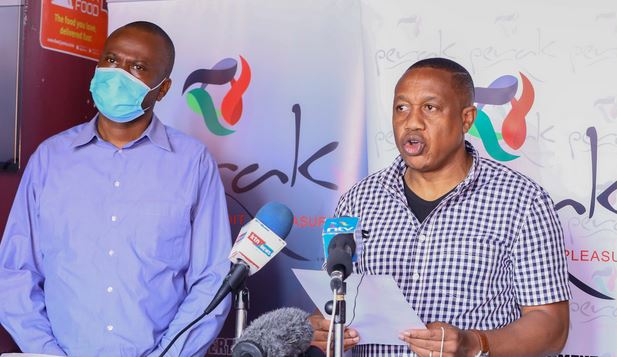×
The Standard e-Paper
Join Thousands Daily

Muthamia, (center) Board member PERAK during a press briefing. The body has been working to develop protocols to enhance bars and restaurants resume operations safely. Looking on is Frank Mbogo (right) PERAK Chair, Nairobi.